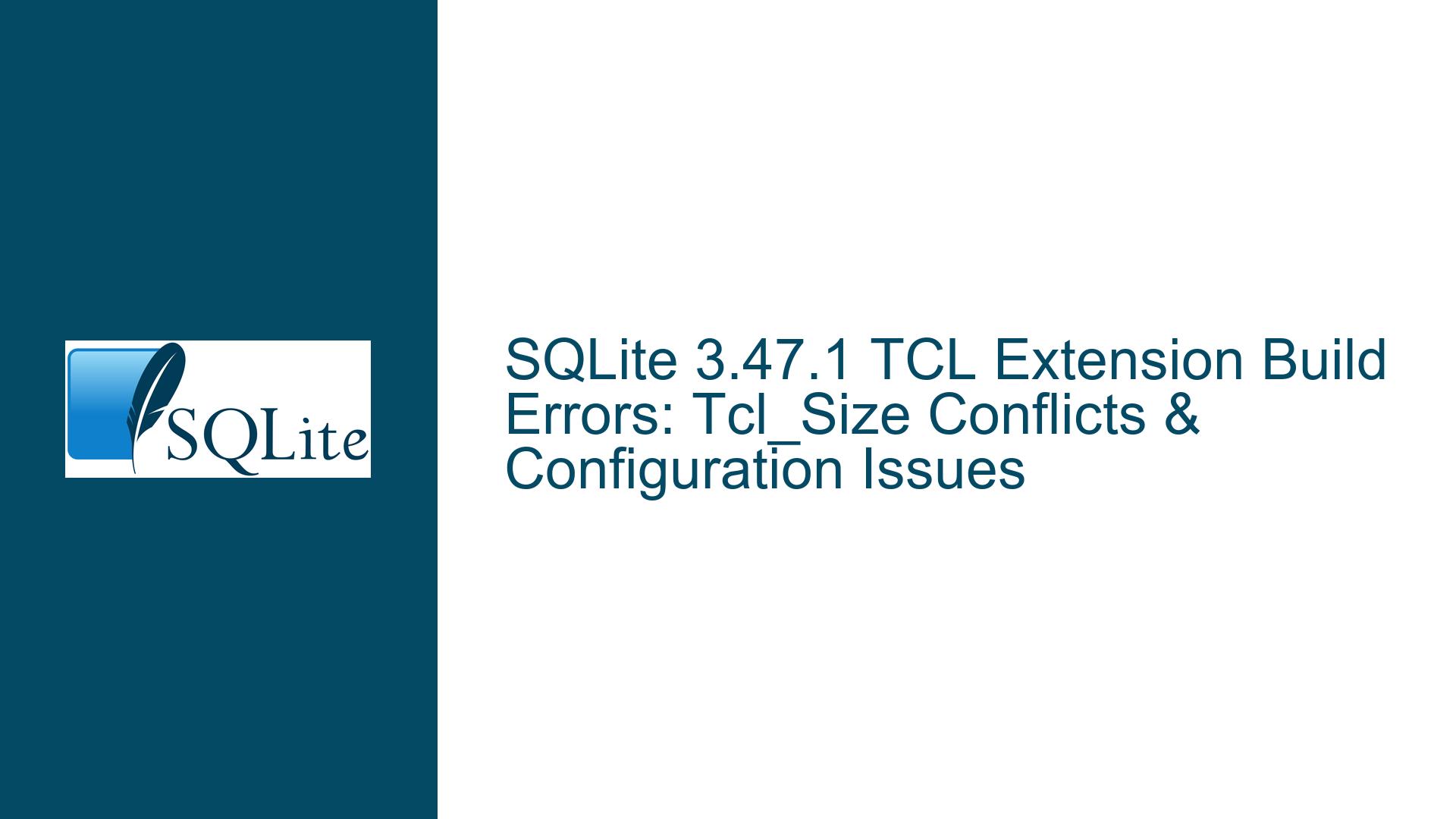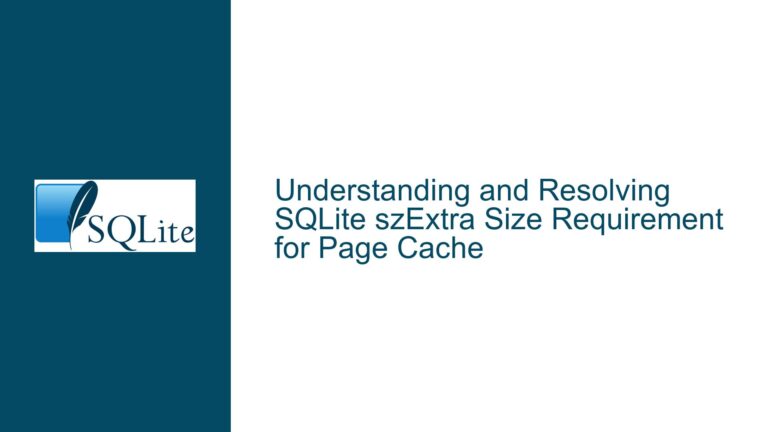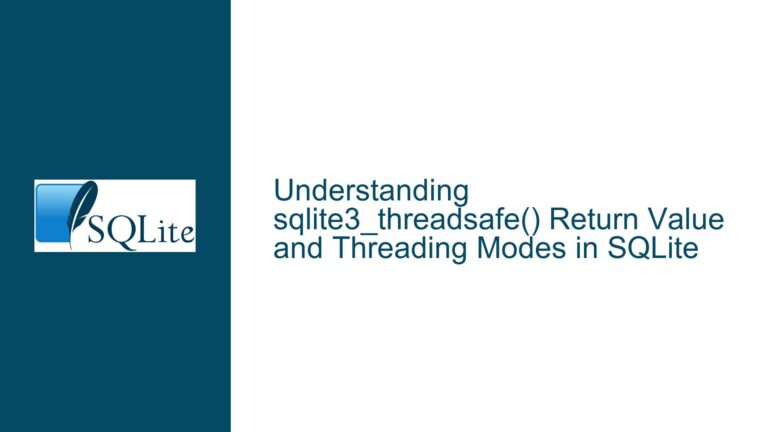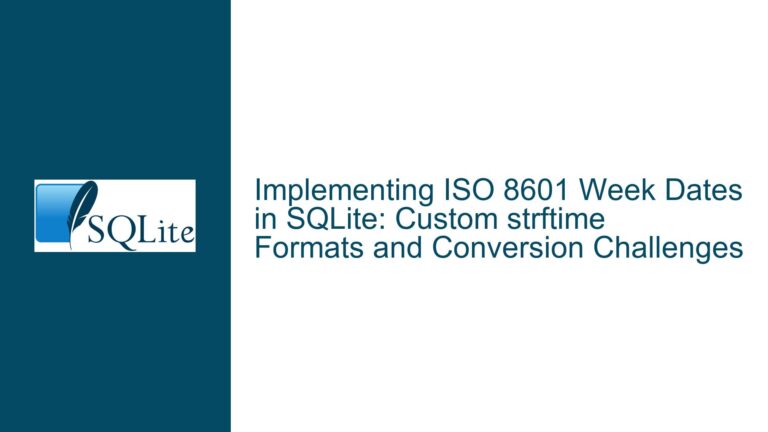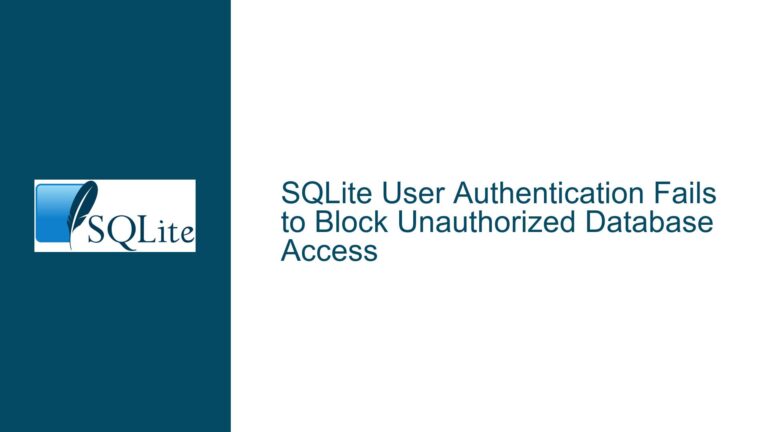SQLite 3.47.1 TCL Extension Build Errors: Tcl_Size Conflicts & Configuration Issues
Issue Overview: Compilation Failures in TCL Extension Due to Type Conflicts & Configuration Mismatches
The core issue revolves around compilation errors when attempting to build the TCL extension for SQLite 3.47.1 using the canonical Makefile or the TEA (Tcl Extension Architecture) build system. The errors manifest in two primary forms:
Type Declaration Conflicts:
During themakeprocess, the compiler reports a "two or more data types in declaration specifiers" error attypedef int Tcl_Size;intclsqlite3.c. This indicates a conflict between SQLite’s internal definition ofTcl_Sizeand the one provided by the TCL headers.Configuration Script Failures:
When using the TEA build system (configurescript), the process fails with errors such as "tclsh reported library directory does not exist" or cryptic messages about history expansion (